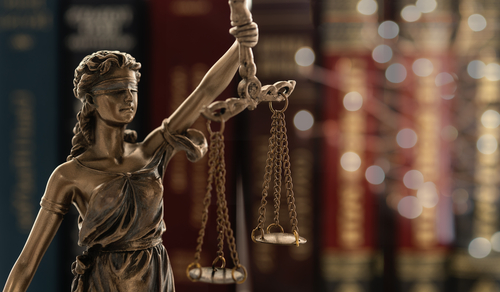
Civil court litigation is perhaps one of the most well-known types of legal disputes. Cases in civil courts can involve a wide range of topics, including but not restricted to cases involving torts, breaches of contracts, equitable claims, class actions, and landlord-tenant issues.
A civil court is a government organization that arbitrates disputes involving two or more parties, according to FindLaw. A civil court's primary objective is to determine who is accountable for the damages, which don't always have to be physical, suffered by the other party in most circumstances. Civil court cases can be complicated so knowing the rules and court procedures is essential.
Personal Injury Claims: Personal injury claims are one of the most prevalent categories of lawsuits in civil litigation. In situations involving personal injuries, the plaintiff seeks restitution for losses incurred as a result of the defendant's conduct. The topic of discussion could be strict accountability, negligence, or malicious wrongdoing. The list includes claims including medical malpractice, motorcycle and auto accidents, fraud, personal injury, animal assaults, and many more.
Contract Disputes: When a person or business breaks their end of the arrangement, the party who is injured can file a civil lawsuit for breach of contract and can request damages. Business contract violations and non-delivery of a product are just a couple of the subjects covered.
Equitable Claims: The aggrieved party may ask the court to issue an order directing a person or entity to stop doing something or to take a certain action. Typically, the plaintiff asks for a respite or temporary restraining order against the offender.
Class Action Lawsuits: A large group or class of persons who are filing a claim against an institution for losses or harms they have suffered are represented by a civil litigation attorney. Class action lawsuits are challenging to defend but can result in significant financial rewards.
Property Disputes: Property conflicts frequently involve disputes over who owns what and where the boundaries are. The court may impose limitations on the intruder in addition to monetary reparation.
You should have faith that your civil litigation attorney will take care of all pertinent case information. This is true whether you are the plaintiff or the defendant.
A civil attorney can offer urgent assistance with the discovery process during the pre-trial phases of a dispute. This method could include any of the following, but not limited to:
You should anticipate that your civil lawyer will provide you with all of your choices for resolving the issue or reaching a settlement. Additionally, get ready for a clear evaluation of your prospects of succeeding in court. Last but not least, after informing you of their price schedule, a civil lawyer should bill you in accordance with it.
In civil cases, the main two parties are the Defendant and the Plaintiff. The term "plaintiff" originates from 1278 and has been used to describe someone who is "complaining.” It is derived from the French-English term pleintif. The plaintiff is the party that files a lawsuit after being damaged. An individual, a group, or a business can all be referred to as a "plaintiff" in legal terminology. In contrast, the person at fault in a civil action is known as the defendant; in these cases, defendants often make their first appearance in court voluntarily in response to a summons.
We have included below the most common organizational structure for a civil court. However, keep in mind that some jurisdictions have created their own standards for how a court should work.
Civil court cases and criminal court cases are very different from one another. For instance, the punishments and evidence standards will vary depending on the sort of court.
The primary distinction between the two is that while civil actions are brought by plaintiffs, private parties, or groups, criminal cases are typically pursued by government entities. The second difference is how defendants are ultimately found guilty (criminal court) or liable (civil court). Different legal outcomes are possible in both criminal and civil situations. Injunctions or monetary damages are frequently awarded in civil lawsuits. In comparison, the majority of criminal cases involve jail time and penalties.
Additionally, civil law relies on a standard known as "preponderance of evidence," which, according to Cornell Law School, is a "greater than a 51-percent possibility that the plaintiff's complaint is accurate," as opposed to criminal law, which requires proof to be "beyond a reasonable doubt."
Last but not least, although civil law focuses on relationships between individuals within a particular community or society, criminal law was developed to protect the welfare of the state against behavior that was thought to be detrimental or dangerous to its overall security.
Preponderance, which is characterized as dominance in weight, force, importance, etc., is required for a party to prove its claim or position in most civil proceedings and lawsuits, as well as in administrative hearings. The phrase "preponderance of the evidence" refers to a party demonstrating that its version of the events, their causes, their damages, or their responsibility is more likely than not the truth in personal injury and breach of contract disputes. This requirement is the simplest to meet because, unless the law specifies otherwise, it applies to all civil disputes.
To make it easier to visualize. Think of a scale that represents the burden of proof and has trays on either side that contain all of the evidence that each side has offered. To illustrate the amount of evidence that one side has in excess of the other, one side of the scale should slant downward. I hope this illustration will make it clearer for you what "preponderance of the evidence" refers to.
As the party who first filed the case before the court, the plaintiff will have the burden of proof. The burden of proof is often said to consist of two distinct concepts: burden of production and burden of persuasion.
Depending on the jurisdiction in the United States, the following may be included in the burden of proof but is not limited to:
The burden of proof is a key factor in how a case is decided in a courtroom.
It is the plaintiff's duty to establish their case in civil cases. The plaintiff must demonstrate both the truth of the claims and the defendant's or another party's liability for the damages. In civil trials, the plaintiff often needs to provide proof that supports their claim beyond a reasonable doubt. This suggests that the probability that the plaintiff was harmed by the defendant is larger than zero. However, it could be important to offer strong, unambiguous, and trustworthy evidence in more serious civil actions.
Contrarily, until the defense can provide evidence to the contrary, a criminal defendant is deemed innocent. The prosecution almost always has the burden of proof, and the accused is not needed to establish their innocence. A person might, nevertheless, desire to demonstrate their innocence in some circumstances, such as when there are allegations of insanity or self-defense. In order to succeed, the prosecution frequently needs to prove the defendant's guilt beyond a reasonable doubt. The burden of proof is heavier when the defendant's freedom is at stake.
Generally speaking, the burden of proof rests with the person making the claims. The law does not require defendants to meet this burden of proof except in certain circumstances. Remember that when it comes to the burden of proof, the quality of the evidence is just as important as the quantity.
In the legal system, civil court has a fairly broad range of authority. Examples of civil litigation include disagreements between neighbors over property or issues between a landlord and a renter. Additional scenarios include civil sexual assault, personal injury, medical malpractice, and premises liability.
A property owner is held responsible for any damages that come from an accident that happens there under a premises liability claim. Each jurisdiction has laws that mandate how much effort a property must put in to keep guests safe. A "premises liability claim" may be brought against a property for failing to keep visitors safe.
State laws vary regarding who can launch a premises liability case and under what circumstances. When determining whether property owners should be held accountable, some states take the visitor's status into consideration, such as trespasser, licensee, or invitee are the three common visiting statuses in those states. Premises liability claims frequently result from the following circumstances:
The same kinds of significant injuries or wrongful deaths can occur in premises liability claims, even though they typically don't have the same effect or are as noticeable as auto accidents.
It is important to keep in mind that sexual assault can occur in both civil and criminal settings. Each of these sexual assault instances has a special set of circumstances that will influence not just the possible punishments but also how much influence the putative accuser will have over the course of the case.
In a civil sexual assault action, the accuser controls the case's management and has the authority to select the case's course, including the kind of evidence to be used and the number of damages to be claimed. This is typically accomplished through the attorney for the accuser's defense. The complainant must demonstrate that the defendant is more likely than not to be found responsible for the damages in order to establish that they are at least 51 percent to blame for the injury. Instead of filing a lawsuit for sexual assault, the accuser instead claims assault, battery, deliberate infliction of emotional distress, or false imprisonment rather than "sexual assault.”
Civil sexual assault cases merely need to prove their case by a preponderance of the evidence, hence can occasionally proceed more rapidly than criminal cases. For the same reason, sexual assault litigation in civil court may be more challenging to defend. Oftentimes, accusers go above and beyond to find a peaceful solution or seek restitution when the accused is wealthy or well-known.
In any case, accusations of sexual assault and abuse are grave charges with complicated issues that may call for the expertise of devoted sexual abuse attorneys who are knowledgeable about the specifics of such cases and are able to offer stern solutions that protect the victim's rights.
Negligence that puts a patient's health or safety in danger while they are receiving treatment is referred to as medical malpractice. This includes not giving patients the attention they need at a hospital or care facility, performing procedures improperly, providing unsuitable medication or treatment, disregarding symptoms, and incorrectly diagnosing illnesses.
In civil disputes, the opposing party is typically sought out for injunctions or monetary damages. The majority of medical malpractice claims center on patients who received a faulty or inadequate diagnosis. Other examples of medical carelessness include birth injuries, pharmaceutical mistakes, anesthetic mistakes, and surgical mistakes.
Q: How long does it take to settle a lawsuit?
A: Unfortunately, if the potential lawsuit is to be handled properly, it cannot be done in a short amount of time.
Q: How can I determine the legality of my civil lawsuit?
A: Consult with a lawyer who specializes in that field of law to ascertain whether you have a strong case. He or she will be better qualified to assess your situation and decide whether to accept your claim.
Q: What's the process of contract law?
A: Contract law, a branch of civil law, is in charge of interpreting contracts and resolving disputes. All commercial transactions, including buying a bus ticket and trading stocks, are governed by contract law.
Q: How long do I have before filing a civil lawsuit?
A: No matter how compelling a case may be, there is a statute of limitations that could bar any civil lawsuit from proceeding to trial.
